Last Updated: April 2024
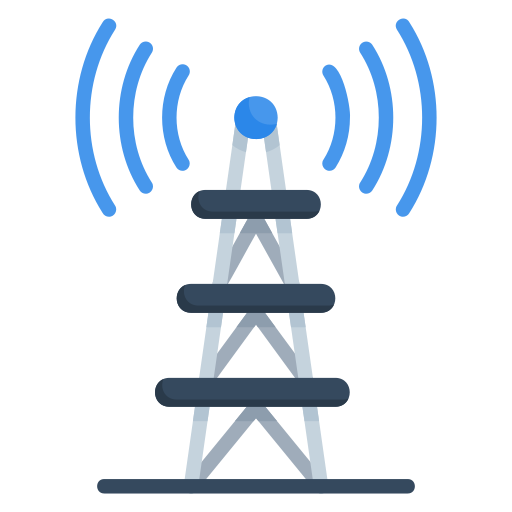
Cell tower rental real estate has become an attractive income and investment opportunity in recent years. With the growing demand for wireless communication and increasing reliance on mobile devices, more cell towers are being built across the country. Property owners and investors can capitalize on this trend by leasing their land for cell tower construction or leasing space on their properties to cellular infrastructure companies.
What is Cell Tower Leasing?
Cell Tower Lease Definition
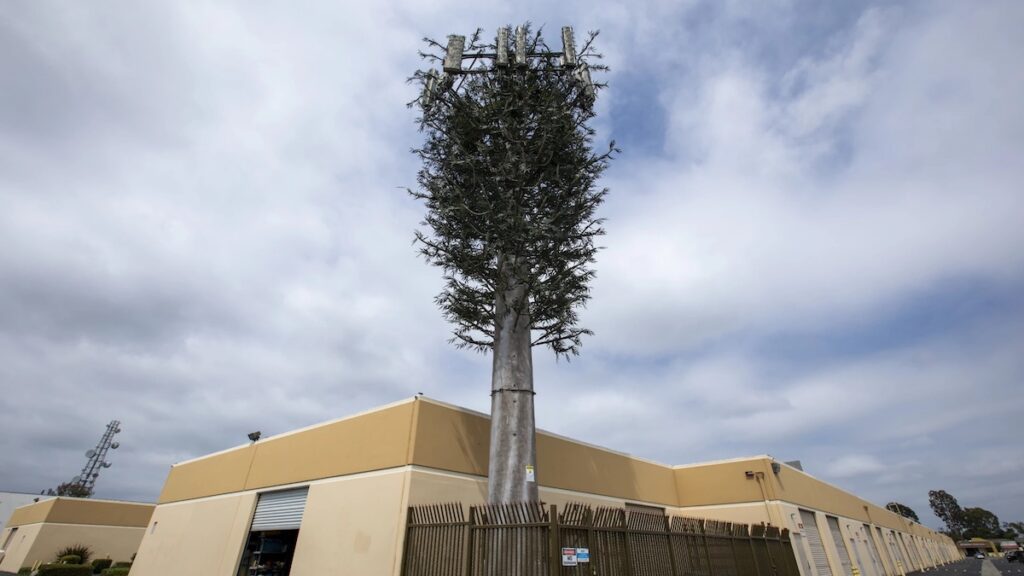
A cell tower lease is a contractual agreement between a property owner and a tower company or a wireless carrier. The property owner allows the tower company to place a cell tower on a specified portion of their land in exchange for rent through a long-term agreement.
Cell Tower Leases and Property Owners Explained
Rental property owners have the opportunity to lease their land or buildings for cell tower installation, providing a lucrative source of passive income. These leases are agreements between the property owner and a telecommunications company to install and maintain a cell tower for a specified period, often spanning several years. In return for leasing their space, property owners receive regular rental payments, which can be significantly higher than typical property rents. The terms of these leases cover various aspects, including the size of the leased area, access rights for maintenance, and any potential impact on the property. Entering into a cell tower lease can be complex, requiring careful consideration of legal, financial, and regulatory factors.
Understanding Cell Towers
Cell Towers in Telecommunications
Cell towers play a crucial role in modern telecommunications by providing the necessary infrastructure for wireless communications. They serve as the primary link between wireless devices and carrier networks, allowing users to send and receive data, make phone calls, or access the internet. Radio frequency signals transmitted by these towers can cover significant areas, ensuring that cell signals are available to many users within their vicinity.
4 Main Types of Cell Towers
Monopole Towers
These are single-pole structures, typically made of steel, and range from about 50 to 200 feet in height. Monopole towers are commonly used in urban areas as they require less ground space and have a smaller footprint. They can support fewer antennas than other types of towers and are often used for cellular and PCS services.
Lattice Towers
Lattice towers, also known as self-support towers, are freestanding frameworks made of metal, often steel. They are characterized by their lattice-like structures, which provide strength and stability. These towers can be much taller than monopoles, reaching heights of over 500 feet, and can support multiple users and a large number of antennas, making them suitable for heavy-duty applications.
Guyed Towers
Guyed towers are tall, thin towers supported by guy wires, which are anchored to the ground in all directions. These towers are cost-effective and can reach significant heights, often exceeding 300 feet. They are primarily used in rural areas where large coverage is required, and the extensive land available allows for the wide anchoring of guy wires.
Stealth Towers
Stealth towers are designed to blend into their surroundings and are often disguised as other structures like trees, flagpoles, or even church steeples. These towers are used in areas where traditional towers might be considered eyesores or are restricted by local zoning laws. While stealth towers are less obtrusive, they typically have a lower capacity and height compared to other types of cell towers.
Cell Tower Lease Agreements
What is a Cell Tower Lease?
A cell tower lease is a contract between a cell tower company or wireless carrier and a property owner for the use of land to install and operate cell tower equipment. These agreements outline the terms and conditions, such as rent, lease duration, and rights granted to the tenant. By leasing their land, property owners can generate additional income while providing necessary infrastructure for wireless communication networks.
Key Terms and Conditions in Cell Tower Leases
Cell tower leases can be complicated and contain many stipulations that uncommon to traditional rental real estate lease agreements. Below are a few of the most common cell tower conditions and key terms to look out for:
- Rent: The monthly or annual payment made by the tenant (cell tower company or wireless carrier) to the landowner. The amount is typically negotiated based on factors like location, tower height, and market demand.
- Duration: The length of the initial lease term, which can range from 5 to 25 years.
- Renewal Options: The contract may include options for the tenant to extend the lease in increments, often 5 or 10 years, with a predefined number of available renewal terms.
- Permitted Use: The specific activities that the tenant is allowed to conduct on the leased property, such as installing and maintaining cell tower equipment or antennas.
- Access: The tenant’s right to access the leased property, usually through an easement, for the purpose of installing and maintaining equipment.
- Equipment and Installation: The agreement should specify the type and size of equipment to be installed, as well as any requirements for installation, safety, and aesthetics.
- Maintenance and Repairs: The lease should clarify the responsibilities of the tenant and landlord for maintaining and repairing equipment and property damage, respectively.
- Insurance and Indemnification: The tenant is typically required to carry liability insurance and may be responsible for indemnifying the property owner against any claims arising from the operation of the cell tower.
Understanding Lease Duration and Renewal Options
The duration of a cell tower lease is a critical aspect for both landlords and tenants. A long-term lease provides stability and predictability for the tenant, while a shorter lease allows the landowner more flexibility and the opportunity to negotiate better terms in the future. Upon the expiration of the initial term, renewal options come into play. Tenants usually have the option to renew the lease for one or more predefined periods. However, these options may come with renegotiations of rent or other terms. Consequently, it is crucial for landowners to understand the tenant’s renewal rights and to be prepared for potential lease negotiations during renewal periods.
Economics of Cell Tower Leasing
Determining Lease Rates
Lease rates for cell towers depend on several factors. On average, the rent charged to cell companies ranges from $34,000 to $61,000 annually. Factors influencing lease rates include location, demand, and the specific needs of the wireless carrier. Landowners should be aware of these factors when negotiating terms, as they can significantly impact the final lease rate agreed upon.
Determining the Demand of Cell Towers
The demand for cell towers is constantly growing due to the increasing number of mobile devices and the need for improved cellular signal coverage. Moreover, the ongoing rollout of 5G technology further bolsters this demand. Typically, cell towers have space for up to five wireless tenants, making them valuable vertical real estate assets. As demand continues to rise along with advancements in wireless technology, landowners have an opportunity to generate substantial revenue from leasing their land for cell tower installations.
Long-Term Financial Considerations for Property Owners
Being a property owner with a cell tower lease can provide a significant source of passive income for many years, as these leases usually generate rent which increases the net operating income of the property. To maximize the benefits of such an agreement, it’s essential to consider factors like rent escalators and periodic rent increases to ensure a stable and growing cash flow. A key part of managing a cell tower lease successfully is staying informed about market demand and potential future growth opportunities. This requires a comprehensive analysis of the cell tower’s location, structure, and tenant mix, as well as any contractual terms related to lease escalations and renewals. It’s also important for landowners to be aware of their rights and responsibilities under the lease agreement, such as maintenance, access, and insurance requirements. By maintaining a proactive approach to asset management, property owners can not only protect their investment but also maximize their cell tower lease value.
Lease Buyout Options
In some cases, property owners may consider selling their cell tower lease, either to the tower company themselves or to a third-party investor. This process, known as a lease buyout, allows the landowner to receive a lump sum cash payment in exchange for their future rental income. The decision to pursue a cell tower lease buyout should be carefully evaluated based on several factors, such as the remaining lease duration, current rental terms, and potential future rent escalators. Additionally, property owners should consider any tax implications and the financial stability of the buyer. When exploring lease buyout options, it’s advisable to consult with a knowledgeable professional who can help assess the current and future value of the cell tower lease. By weighing the pros and cons of a buyout, property owners can make an informed decision and potentially secure a significant financial gain, while also simplifying their long-term asset management.
Legal and Zoning for Cell Towers
Cell Tower Zoning and Permitting
One of the first steps in the development of a cell tower site is obtaining the necessary zoning and permits. Local zoning regulations determine the allowed uses of a property and specific requirements for cell tower installations. Some areas may require special use permits, while others may have strict height or setback limitations. Additionally, many municipalities have aesthetic requirements to minimize the visual impact of the tower. Property owners should familiarize themselves with zoning regulations and work with experienced professionals to navigate the permitting process. It’s essential to have a clear understanding of any zoning restrictions when negotiating a cell tower lease or purchasing a property.
Legal Restrictions
In addition to zoning challenges, property owners must also be aware of potential legal restrictions and liens on the property where the cell tower is located. These can significantly impact the development and operation of the site. Legal restrictions may include easements, rights-of-way, or restrictive covenants that limit the use of the property or impose specific conditions for cell tower installations. A thorough title search should be conducted to identify any such restrictions prior to signing a cell tower lease or purchasing the property. Liens can also create challenges for cell tower operators and property owners. A lien is a legal claim on a property, often related to unpaid debts or taxes. In some cases, a lien may prevent a property owner from leasing the space for a cell tower until the lien is satisfied.
Impacts of Cell Towers on Rental Properties and Tenants
Assessing the Impact of Cell Towers on Property Value
The installation of a cell tower on a rental property can have both positive and negative effects on its value. On one hand, a cell tower lease agreement can provide additional income for the property owner. However, studies have shown that homes close to cell towers may sell at a discount of up to 7.6%, and any noticeable effect disappears at 1500 feet. Factors that may influence the impact of a cell tower on a property’s value include:
- Proximity: as mentioned earlier, the value decrease tends to diminish as the distance from the tower increases
- Visibility: if the tower is easily visible, it may have a more significant impact on perceived value
- Lease terms: the specific financial arrangements of the cell tower lease can affect the property’s overall value
Addressing Tenant Concerns and Safety Issues
One essential aspect of managing rental properties with cell towers is addressing tenants’ concerns. It is important to educate tenants about the safety regulations in place for cell towers and address any misconceptions they may have. Providing transparent information about the cell tower and its potential impacts can help alleviate tenants’ concerns. When it comes to safety issues, cell towers are regulated by the Federal Communications Commission (FCC) to ensure that they operate within limits to protect the public. The FCC has established guidelines for acceptable levels of radio frequency (RF) exposure, and cell towers are required to comply with these limits.
Navigating Lease Agreements and Redevelopment Opportunities
Commercial landlords and property owners need to be aware of the potential challenges presented by cell tower lease agreements, particularly when it comes to redevelopment. If a lease agreement does not address the possibility of property redevelopment, the cell tower tenants could hold the property owner hostage, demanding excessive relocation expenses, thus hindering the redevelopment project. To prevent this situation, property owners should consult experienced legal professionals when negotiating cell tower lease agreements. Ensuring that the agreement provides clear terms and balances the interests of both parties can help avoid future conflicts and protect the property owner’s interests.
Pros and Cons of Cell Tower Leasing
Cell tower leasing can be a lucrative source of income for property owners. With the rise in demand for wireless communication, companies often seek out private land for tower installations. However, before jumping into a lease agreement, it’s crucial to weigh the potential benefits and drawbacks. Here, we’ll take a look at some common pros and cons of cell tower leasing for property owners.
Pros of Cell Tower Leasing:
- Steady income stream: A major advantage of cell tower leasing is the steady income it can generate. Lease agreements typically last for around 25 years, providing property owners with a long-term, passive revenue source.
- Potential for appreciation: As wireless communication technology evolves and demand grows, rental rates may increase over time. This can lead to higher revenues for property owners.
- Better reception: Hosting a cell tower on the property often results in better reception for the property owner and their tenants.
- Low maintenance: Cell towers are generally low maintenance for property owners, since the upkeep and repairs are handled by the leasing company.
- Minimal land use: Cell towers typically occupy a small footprint on the property, leaving more space for other uses.
- Limited competition: Restricted zoning laws and regulations often make suitable land scarce, allowing property owners with prime locations to demand higher lease rates.
- Portfolio diversification: Adding cell tower leasing to a property investment portfolio can provide diversification, reducing overall risk.
Pros of Cell Tower Leasing:
- Aesthetics: Some property owners may find cell towers to be visually unappealing, negatively impacting the overall appearance of their property.
- Limited control: Lease agreements often provide more control to the cell tower company, leaving property owners with limited say in tower modifications and usage.
- Difficult negotiations: Negotiating a favorable lease agreement can be challenging and may require the assistance of legal and industry experts.
- Long-term commitment: Lease agreements typically run 25 years or more, limiting the property owner’s options to remove the tower if circumstances change.
- Possible property value impact: Depending on the property type and location, the presence of a cell tower could potentially affect the market value.
- Limited tenant pool: Some commercial tenants may be discouraged from leasing space on a property with a cell tower, narrowing the pool of potential renters.
- Radiation concerns: Although studies have not conclusively proven a link, there may be lingering public apprehension regarding health and environmental risks from cell tower radiation, which could affect the property’s appeal.
The #1 Rental Property Newsletter
Once a month, we send out an exclusive Rental Property Market Update with top stories, current mortgage rates, building products, and more. No spam and unsubscribe anytime.

Cell Tower Lease Investing
Cell tower leases can be a lucrative addition to your investment portfolio. As telecommunication companies continue to expand their services, they require more cell towers across different locations to maintain and improve their networks. These companies sign long-term lease contracts to use the desired land or buildings, providing a steady source of income for the property owner. One of the prime ways to invest in cell tower leases is through Real Estate Investment Trusts (REITs). REITs focused on this sector often have portfolios consisting of multiple cell tower leases, enabling investors to gain exposure to this growing market. Additionally, the impact of cell towers on a property’s value should not be ignored. Wireless Equity Group states that cell towers can have either a positive or negative effect on property value, depending on the asset class. To get started with such investments, consider engaging in thorough research to familiarize yourself with the market dynamics. Here are a few factors to contemplate:
Location: The demand for cell towers is greater in densely populated areas, meaning properties in these locations could yield higher rental rates.
Lease terms: Longer lease contracts typically translate to a stable income stream for the investor. However, specific terms within the lease may also affect the desirability of a cell tower investment, such as escalation clauses or lease termination rights.
Property type: Cell towers are commonly found on remote land parcels, but can also be installed on rooftop antennas or commercial buildings. Each property type has its benefits and potential drawbacks.
Top 5 Largest Cell Tower Companies
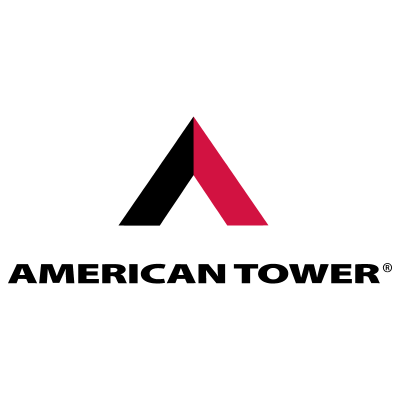
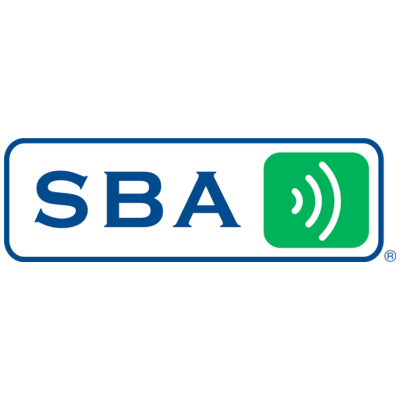
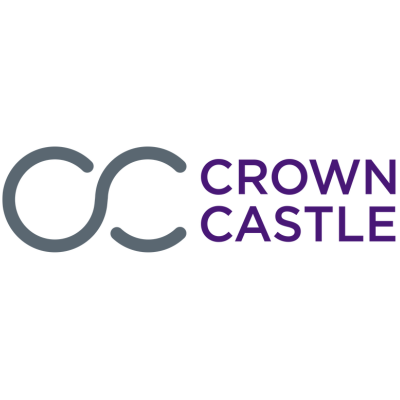
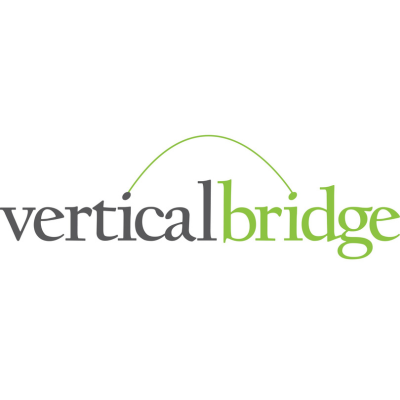
The cell tower leasing industry has seen significant growth in recent years, with various companies competing for prime real estate to host their communication equipment. Several of the largest cell tower companies have established themselves as leaders of the industry, with extensive portfolios of tower facilities across the country and internationally.
Search Rental Real Estate
Try searching out site for hundreds of rental property topics ranging from property management, investor tool reviews, investment research, and more.
Cell Tower Leasing FAQ
How can a cell tower on my property financially benefit rental property owners?
Having a cell tower on your property can provide a significant source of passive income through lease agreements with wireless carriers. Rent payments for hosting a cell tower can range from a few hundred to several thousand dollars per month depending on factors such as location, demand, and tower height. It’s essential to negotiate favorable lease terms to maximize the financial benefits of a cell tower on your property. Tower Advantage provides helpful answers to common cell tower lease questions.
What should I be aware of before agreeing to a cell tower lease?
Before agreeing to a cell tower lease, it’s vital to understand the terms and conditions included in the agreement. Issues such as lease duration, rent escalation clauses, and termination rights could significantly impact the arrangement’s long-term viability. Additionally, the installation of a cell tower can affect property value, aesthetics, and future development potential. Consulting with experts like Varnum Law can help you navigate the complexities surrounding cell tower leases and make informed decisions.
How do lease rates differ between major carriers like AT&T, T-Mobile, and Verizon?
Lease rates for cell towers can vary between carriers like AT&T, T-Mobile, and Verizon due to factors such as network coverage needs, tower height, and local market conditions. While a universal standard rate doesn’t exist, National Law Review provides insights into lease rates and rents observed in 2021 and 2022. It’s important to research recent comparable lease arrangements, as well as considering the unique factors of your property.
What are the common negotiation points in a cell tower lease?
Common negotiation points in cell tower leases include rent amount, rent escalation, lease duration, and renewal options. Other considerations may involve property access rights, maintenance responsibilities, sub-leasing arrangements, and termination clauses. Tower Genius offers a comprehensive FAQ section addressing these negotiation points. Engaging an expert in cell tower lease negotiations can help property owners understand and advocate for their best interests during the process.
About the Author

Ryan Nelson
I’m an investor, real estate developer, and property manager with hands-on experience in all types of real estate from single family homes up to hundreds of thousands of square feet of commercial real estate. RentalRealEstate is my mission to create the ultimate real estate investor platform for expert resources, reviews and tools. Learn more about my story.
Disclaimer: The information provided on this website does not, and is not intended to, constitute financial or legal advice. As such, all information, content, and materials available on this site are for general informational purposes only. Please review our Editorial Standards for more info.
